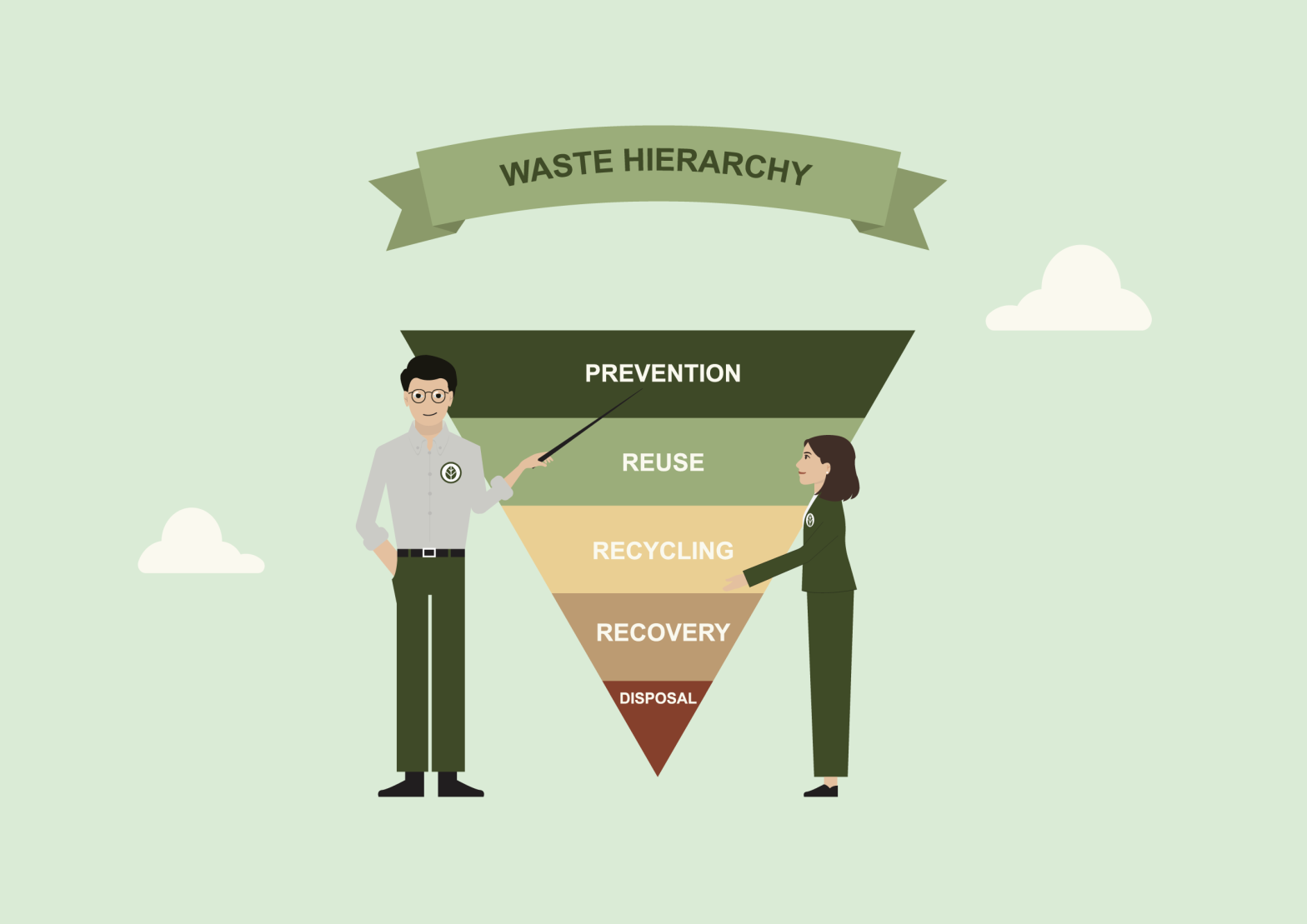Recycling Best Practices 1: Buy Less
Recycling best practices will only take you so far. Reducing the need to recycle is critical. As this inverted triangle indicates, the best way to address our waste issues is to not create demand for more things in the first place. Reducing the need to recycle begins with not confusing wants and needs. Raising this, however, opens up all sorts of social, political and economic issues. It is taboo even to discuss, but how else do we ever reach sustainability without adhering to recycling best practices?
Let’s say then that having decided you were going to purchase a given good, you had the choice of buying it with material that could be reused. At the very least, we need to avoid things that can’t be repurposed, because at the end of the article’s use, we face the burden of it’s disposal. That is a hidden cost we may not have to pay. We should seek that option as necessary and possible.
The Long Island Conservancy strongly recommends Recycle Right New York as a resource for learning about recycling best practices in New York State in particular. The have really done everything one would want to in the way of laying out all the do’s and don’ts and hows of recycling.
Recycle Right NY is coordinated by SUNY-ESF and Syracuse University and funded by the New York State Environmental Protection Fund. They offer newsletters and resources to help residents stay informed and confident about recycling right.
They are focused on promoting more effective and environmentally friendly recycling habits across New York State. Recycle Right NY provides useful tools such as the “Recyclopedia,” which guides users on how to recycle more than 300 common household items correctly. Recycle Right New York also links out to the recycling guideline page for every county in New York State.
Recycling Best Practices: Try To Buy What Can Be Reused
The Long Island Conservancy is eager to take on the waste issue from various directions. Recycling matters greatly of course, knowing the rules and best practices matter. However, we will note that the problem is partly a demand problem. We keep buying things that can’t be recycled.
How is it that so much of what we effectively import onto Long Island is made of material that can’t be recycled, that doesn’t belong here, and must be disposed of? We need to start to think about product life cycles if we are ever going to achieve sustainability. If we can’t reuse it, it eventually becomes a cost. That needs to become part of recycling best practices: The less we need to separate out and dispose of what is left, the better.
We can change our buying habits, import practices, and manufacturing policy. It really comes down to being mindful. The first question has always been: Do I really need this? The second question should be, ‘was this built to last?’ It used to be.
Nationally, Americans produce on the average of 4.9 lbs of trash per day. I’d wager Long Island and its suburban affluence comes in well above the national average. Indeed it is true that the wealthier you are, the more waste you produce, both here and globally, but that actually has created some fertile grounds for community composting efforts on Long Island.
Recycling Best Practices: Community Composting
With hundreds of thousands of homes and restaurants, what Long Island has a lot of is food waste. It is a huge problem. The recently formed Long Island Organics Council has been working towards the goal of establishing community composting. The Council focuses on composting as a key solution for reducing over 30% of Long Island’s residential waste that can be diverted from toxic landfills.
They facilitate a bi-monthly virtual meeting featuring guest speakers to discuss local composting community topics. and act as a connector, building relationships between individuals and institutions for composting efforts.
Of late, they have been working with municipalities to promote the sale of “Earth Machines,” home composters offered at a discounted rate of $65 for town residents. Here is a link to The Town of Hempstead’s Earth Machine page.
We support their efforts, and the creation of our recycling sticker was due to our shared interest and concern about this burgeoning problem. We need people to know recycling best practices if we are to build a better future.
We also recommend following the work of Josh Whiton, and his organization Makesoil.org, which focuses on community composting on a global scale. He offers a lot of practical advice on establishing and running such projects. We posted a segment on him a couple of years back.
We will continue to add new resources to this page as we find them.

